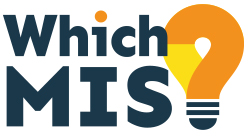Just before Christmas our friend and colleague, Joshua Perry, posted a new blog entitled: “SIMS Announcement and Request to Share your MIS Switching Experiences” – you can read that post here…
At the bottom of Josh’s blog is a link to ‘Guidance to customers extracting data from SIMS or FMS for the purpose of migration or data archive.’
As is often the case, the comments on Josh’s article also make for interesting reading. It’s clearly a huge topic and one we’ll let Josh lead on, however, over the past couple of months, we’ve published four articles on the topic of ethics in the MIS market (e.g. MIS Market Churn – Winter 2023) and now that there’s more churn than ever before, we think that all providers should ensure that no barriers are put in the way.
WhichMIS? believes that all schools and MATs should be able to choose the best system for them, and changing provider should be as simple as possible.
We have had sight of the latest missive from ESS to their SIMS Support Units (SSUs) and this makes some worrying points.
In it, ESS explain that in the first quarter of 2024, they will offer all existing approved SSUs a new style 3 -year agreement. Whilst moving to this new agreement will be optional, any SSU that does not accept it will not be authorised to provide support for SIMS Next Generation (SNG) meaning, in reality, SSUs have little option.
ESS will also be making offers to schools and MATs as an enticement to enter into new 3-year deals out to March 2027 or beyond (remember the uproar when they introduced their original 3-year deals a couple of years back?).
Schools signing up to extend their agreements for a further three years will receive additional benefits such as discounted pricing, price freezes plus additional discounts if they also add ESS’s direct support.
Apart from the obvious enticement to get schools to stay with them even longer (presumably in another attempt to stop the loss of customers they have been experiencing) this also seems to be trying to entice schools into using ESS support instead of going to their local support teams.
In addition, the notice of change to the SSU agreements also mentions that the SSU is not permitted to provide hosting services for SIMS software to any school or third party or be in breach of their agreement and be guilty of infringing on ESS’s intellectual property.
Further requirements are that the SSU must promote all Parent Pay Group (PPG) products or services on at least an equal footing to any competing product; must not make any recommendations in relation to the adoption of any such competing products in preference to any PPG products; and must include ESS as an equal participant in any procurement process organised by the SSU.
How can this ensure that the SSU is making recommendations to their schools and MATs that are based on what is best for the school/MAT?
ESS also stipulate that schools must not use backups to help with migrating their own data to another provider and that SSUs must not use any confidential information including anything they have created or developed including any technical data or know-how in relation to ESS software to assist with any ESS customer migrating to another provider.
This again sounds unfair since the SSU should be providing whatever support is required by their schools to support them in using whichever software they have purchased if they are to remain agnostic and trusted by their customers.
Equally, this appears to be ESS trying to make it more difficult for schools to move away from them to another provider. Whilst this may not be an actual breach of data protection legislation such as GDPR, it certainly seems to be against the spirit of it where data portability is a right.
Please see our previous article:
If you have an opinion, let us know your thoughts to whichmis@thewisdompartnership.com.

